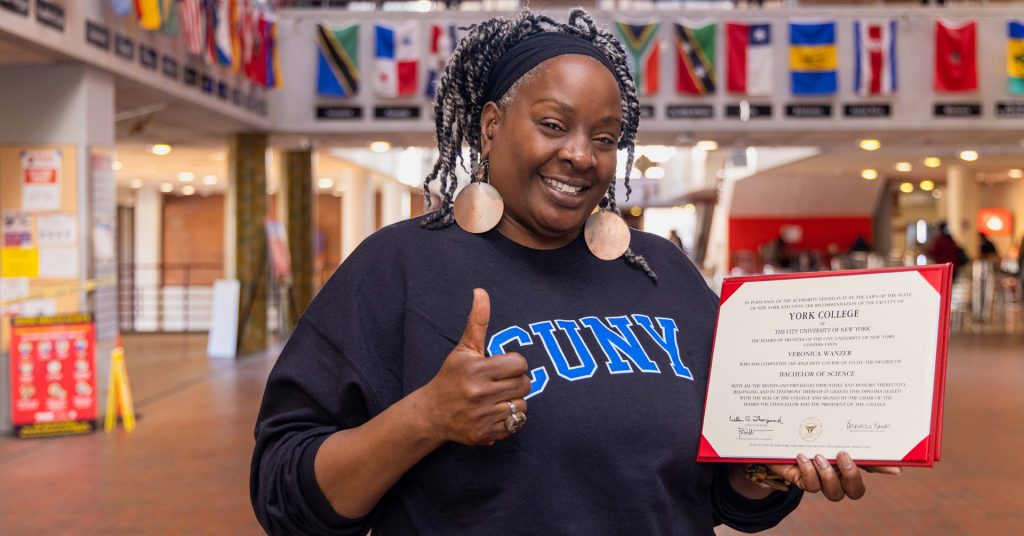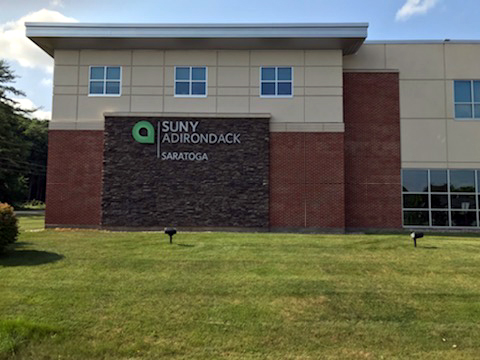The City University of New York will lead a coalition of colleges in the development of a $15 million federally funded program to provide real-world entrepreneurial training and mentoring to local academic researchers. The goal of the New York Region Innovation Corps (I-Corps) Hub, one of five networks established around the country by the National Science Foundation, is to help researchers of diverse backgrounds bring their scientific and engineering discoveries to the marketplace as commercial ventures that spur economic growth and narrow long-standing racial and gender disparities in the STEM workforce.

The $15 million grant to oversee the New York Region is the largest award ever conferred by the NSF to CUNY. It is the culmination of the University’s decade-long embrace and implementation of the NSF’s I-Corps model — a program that integrates federal funding, local, regional and national workshops, and professional mentoring to translate scholarly research to the marketplace.
“This generous award from the NSF is a clear recognition of the meaningful efforts that CUNY and its partners have made in the past decade to build a framework that nurtures and develops the entrepreneurial spirit of its academic researchers,” said Chancellor Félix V. Matos Rodríguez. “We’re especially looking forward to advancing the talents of our faculty, whose expertise in deep technology and commitment to commercializing discoveries will drive the local economy and energize New York’s recovery.”
The New York Region I-Corps Hub includes Columbia University and New York University as core partner institutions, and six affiliate schools: The Icahn School of Medicine at Mount Sinai, Rockefeller University, Stevens Institute of Technology, SUNY at Stony Brook, UMass Medical School, and SUNY at Albany. The NSF’s four other regional university hubs encompass the Great Lakes region (led by the University of Michigan); Mid-Atlantic region (University of Maryland, College Park); Northeast region (Princeton); and the West region (USC). The NSF will disburse the grant funds to CUNY in $3 million increments over the next five years, beginning in January 2022.
John Blaho, director of Industrial-Academic Research at CUNY, and Tamera Schneider, associate vice chancellor for research, will serve as co-principal investigators on the NSF award, with Blaho serving as the faculty lead.
The NSF launched the I-Corps program in 2011; since that time, more than 5,700 people have undergone the NSF’s seven-week training course and approximately 1,000 startups have been created that have cumulatively raised more than $760 million in funding.
Harnessing CUNY Innovation
The New York Region I-Corps Hub will utilize the NSF’s I-Corps model for developing scientific and engineering discoveries into useful technologies. I-Corps teams are composed of a technical lead and an entrepreneurial lead, roles filled by students and faculty members, and a mentor who is an established or emerging industry professional. CUNY and its partner institutions and affiliates are currently in the process of assembling instructors and industry mentors for training programs, and recruiting students and faculty to fill out their I-Corps teams.
Buoyed by $50,000 of seed money from the NSF, the I-Corps teams will work to identify lucrative product opportunities from their academic research and, should commercial opportunities arise, form start-up ventures they will run. The teams’ research and work will occur either on their own college campus or at CUNY’s Hub for Innovation & Entrepreneurship, a 7,100-square-foot workspace located on Harlem’s historic 125th Street. CUNY’s central administrative offices in Midtown Manhattan will serve as the New York region’s administrative headquarters. CUNY will oversee approximately 30 individual I-Corps teams from the New York Region I-Corps Hub after they’ve been assembled for the program’s launch in January.
Stakeholders from the partner and affiliate institutions said the NSF I-Corps Hub will be a boon to the New York region and its innovators from the academic sector, helping to generate products that bring a tangible societal benefit and spur economic growth.
“I am pleased to contribute our drive to advance technology innovation to the growth of a national innovation network,” said Shih-Fu Chang, Ph.D., interim dean and Richard Dicker professor at Columbia Engineering. “We look forward to increasing our impact and opportunities for collaboration through the proposed innovation network.”
“It’s a wonderful thing when missions align across institutions, and that’s exactly what’s happening here with the New York Region inaugural NSF I-Corps Hub,” said Stacie Bloom, vice provost of research and chief research officer at New York University. “The New York region is home not only to some of the world’s leading research universities, but also to many innovative growth industries, and the I-Corps Hub will serve to foster greater and more productive interaction between the two. It is also coming at the perfect time for NYU, as our research enterprise has never been stronger and we are making large investments in innovation and commercialization to bring products to market to benefit society. This award will help translate cutting-edge academic research into entrepreneurial ventures that will play a critical role in our region’s economic development.”
“We appreciate this opportunity to wholeheartedly support Dr. Blaho and the New York I-Corps Hub,” said Timothy P. O’Connor, Ph.D., executive vice president of The Rockefeller University. “The ability to enhance resources in support of our scientists’ innovative research is an essential component of our institutional success.”
“We look forward to offering our deep expertise in biomedical sciences to such great partner institutions and NSF to advance entrepreneurship in the region,” said Erik Lium, Ph.D., president of Mount Sinai Innovation Partners and chief commercial innovation officer of Mount Sinai Health System. “We are excited about the collaborative possibilities and remain committed to expanding our robust entrepreneurial training to academic researchers and students.”
“As the only research university serving a geographic region more populous than 15 states, Stony Brook embraces its role as an engine of economic growth based on discovery and innovation,” said Jon P. Longtin, Ph.D., P.E., interim dean of the College of Engineering and Applied Sciences at Stony Brook University. “Stony Brook’s position as an I-Corps Hub Affiliate can provide a centralizing focus for our university’s comprehensive and powerful suite of economic development programs to reach out, directly and through major business organizations, to embrace our region’s deep technology resources — research institutions, startups and small companies, students on our and other campuses — and create the framework of a self-sustaining regional ecosystem of discovery, invention and innovation.”
“In these trying times of a global pandemic and racial tension in our nation, UAlbany stands committed to supporting programs like I-Corps that will enable us to rise to these challenging issues through the implementation and assessment of deep technology and translational research,” said James A. Dias, Ph.D., vice president for research at the University at Albany.
“We’re excited to continue our work with CUNY on I-Corps,” said Katherine Luzuriaga, M.D., director of the UMass Center for Clinical & Translational Science and vice provost of clinical and translational research. “By expanding our ability to train investigators throughout the Northeast in the I-Corps methodology, this award will provide a significant boost to our efforts to more efficiently translate scientific discoveries to the clinic.”
“The new funding marks the great progress being made at Stevens toward building a strong innovation driven sector in our economy, bringing ideas out of the lab and into the real world,” said Negar Tavassolian, Ph.D., Stevens Institute of Technology faculty lead. “With the new funding, we will be able to have an even bigger impact on our community and we are very excited about this aspect of it.”





Facebook Comments